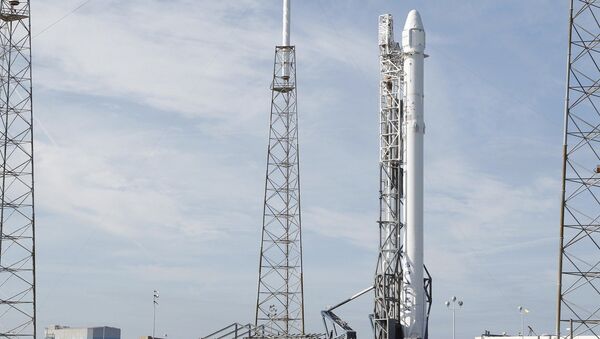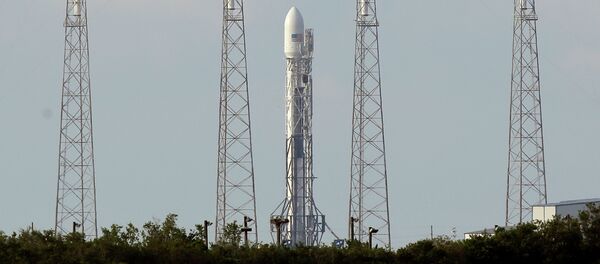The Dragon spacecraft was brought into the orbit by the Falcon 9 carrier-rocket. After completing the task, the first stage of the carrier-rocket was expected to land on a huge platform installed in the ocean off the coast of Florida.
According to US media reports, Falcon 9 crashed into the platform and broke into pieces, making it impossible to use the rocket in the future.
Rocket made it to drone spaceport ship, but landed hard. Close, but no cigar this time. Bodes well for the future tho.
— Elon Musk (@elonmusk) 10 января 2015
Ship itself is fine. Some of the support equipment on the deck will need to be replaced…
— Elon Musk (@elonmusk) 10 января 2015
The first stage of SpaceX's Flacon 9 rocket failed to make a soft landing at the ocean platform after separating from the spacecraft Dragon, chief executive of SpaceX private developer said Saturday.
"Rocket made it to drone spaceport ship, but landed hard. Close, but no cigar this time. Bodes well for the future tho. Ship itself is fine. Some of the support equipment on the deck will need to be replaced," Elon Musk said via Twitter.
Musk earlier stated that in case of successful landing, his company would be able to use the rocket's booster stage multiple times, which would change the economics of space flights completely.
Ascent phase good. Dragon deployed to Space Station rendezvous orbit.
— Elon Musk (@elonmusk) 10 января 2015
The Dragon spacecraft is set to deliver supplies to the ISS, including the Cloud-Aerosol Transport System (CATS) for monitoring and examining cloud formations and tiny atmosphere particles, and materials for researching brain and contagious diseases under space conditions.
[PHOTO] Liftoff of Falcon 9 & Dragon on SpaceX's fifth official mission to resupply the space station. pic.twitter.com/HPU3LOydDZ
— SpaceX (@SpaceX) 10 января 2015
Initially, the launch of the Dragon spacecraft to the ISS was scheduled for December 2014, but was delayed three times due to technical issues. The latest launch was postponed due to a malfunction in Falcon 9's carrier booster.
Private developer SpaceX is obliged under its contract with the US National Aeronautics and Space Administration (NASA) to carry out 12 launches to the ISS by 2016. In September 2014, the company was awarded a $6.8 billion contract with Boeing to develop manned flights to the station. SpaceX is developing a manned spacecraft on the basis of the Dragon capsule.
The @SpaceX #ISScargo mission is loaded w/ 5,108 pounds of food, water & clothing for astronauts plus @ISS_Research pic.twitter.com/EMMjzVqHCt
— NASA (@NASA) 10 января 2015



